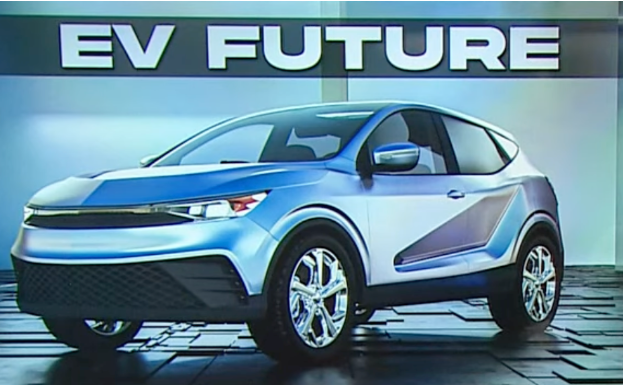News
Trump Transition Team Targets Removal of EV Tax Credit

Source: YouTube
President-elect Donald Trump’s transition team has announced plans to eliminate the $7,500 tax credit for electric vehicle (EV) purchases. This proposal, part of a broader tax-reform initiative, could reshape the EV landscape in the United States. Surprisingly, Tesla CEO Elon Musk, a strong Trump ally and leader of the country’s largest EV company, has expressed support for the move, citing strategic benefits for Tesla.
The EV tax credit, introduced under President Biden’s Inflation Reduction Act (IRA), has been a cornerstone of efforts to accelerate EV adoption. While it incentivizes consumers to make eco-friendly choices, Trump’s administration views the subsidy as an unnecessary expense that benefits wealthy buyers disproportionately. The proposed repeal has sparked debates about its impact on the EV market and the broader transition to sustainable energy.
Why Kill the EV Tax Credit?
The decision to repeal the EV tax credit aligns with Trump’s broader campaign promises to roll back Biden-era climate policies. The tax credit has been criticized by Republicans as costly and skewed toward upper-income households. By eliminating it, the administration aims to redirect funds toward extending Trump’s earlier tax cuts, which are set to expire.
Critics of the repeal warn that it could stall the U.S. EV transition by making electric vehicles less accessible to price-conscious consumers. Automakers like Ford and General Motors have relied on the subsidy to boost sales of their new EV models, many of which are already struggling to compete with Tesla’s cost efficiencies. Without the tax credit, the price gap between EVs and traditional gas-powered cars could widen, discouraging buyers and slowing EV adoption.
Supporters of the move argue that the EV market should rely on innovation and competition rather than government subsidies. Trump’s energy team, led by oilman Harold Hamm, views the repeal as part of a broader push to dismantle green policies that favor renewable energy over fossil fuels.
Musk’s Support: A Tesla-First Strategy
Elon Musk’s endorsement of the repeal has drawn significant attention. Tesla has historically been the largest beneficiary of the EV tax credit, yet Musk believes eliminating the subsidy could strengthen Tesla’s market position by weakening its competitors. Smaller EV makers like Rivian and Lucid, which lack Tesla’s economies of scale and manufacturing efficiencies, may find it harder to compete without the tax credit.
Tesla’s dominance in the U.S. EV market, where it accounts for nearly half of all sales, gives it a unique advantage. While the repeal might slightly impact Tesla’s sales, Musk argues that it will be “devastating” for competitors still struggling to scale production and cut costs. By removing the subsidy, Tesla can continue to leverage its engineering prowess to maintain its market share, while rivals face increased pressure.
Musk’s close relationship with Trump has also played a role in shaping the administration’s policies. As a key advisor in Trump’s transition team, Musk’s influence underscores his commitment to ensuring Tesla’s long-term success, even if it comes at the expense of the broader EV industry.
The Broader Impact on the EV Industry
The repeal of the EV tax credit could have far-reaching consequences for the industry. Automakers like GM and Ford, which are investing heavily in EV production, may struggle to achieve profitability on electric models without the subsidy. The credit has been instrumental in offsetting high production costs, making EVs more attractive to consumers.
Critics also warn that eliminating the tax credit could hinder U.S. automakers’ ability to compete globally. Chinese EV manufacturers, heavily subsidized by their government, have gained significant market share in recent years. Without similar support, U.S. companies risk falling behind in the race to dominate the EV market. Additionally, environmental advocates argue that the repeal undermines efforts to reduce carbon emissions, a key goal of the IRA.
Trump’s Strategic Balancing Act
Trump’s decision reflects a delicate balancing act between supporting Musk and prioritizing fossil fuel interests. While the repeal benefits Tesla in the short term, it also aligns with Trump’s broader agenda to boost oil production and roll back green initiatives. This strategy highlights the administration’s preference for market-driven competition over government intervention in the EV space.
For Musk, the repeal represents an opportunity to solidify Tesla’s dominance. For the broader industry, however, the decision raises questions about the future of EV adoption and the role of government incentives in shaping market trends.
Do you think eliminating the EV tax credit will help or harm the U.S. EV industry? Tell us what you think!



